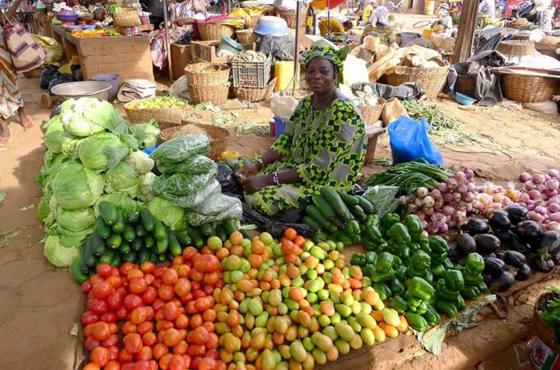Smallholder farmers on the continent must take advantage of the booming $1trillion food import market in Africa, this was the conclusion from the Africa Agriculture Status Report (AASR) launched at this year’s African Green Revolution Forum (AGRF), in Cote d’Ivoire.
According to the report, the power of the free market is driving Africa’s economic growth from food production, as business wakes up to opportunities of a rapidly growing food market in Africa, which it said, may be worth more than $1 trillion each year by 2030.
The report said agriculture could be Africa’s quiet revolution, with a focus on SMEs and smallholder farmers creating the high productivity jobs and sustainable economic growth that failed to materialize from mineral deposits and increased urbanization.
Commenting on the report findings, Dr. Agnes Kalibata, President of the Alliance for a Green Revolution in Africa (AGRA) which commissioned the study said: “Africa has the latent natural resources, skills, human and land capacity to tip the balance of payments and move from importer to exporter by eating food made in Africa.”
“This report shows us that agriculture involving an inclusive transformation that goes beyond the farm to agri-businesses will be Africa’s surest and fastest path to that new level of prosperity,” she added.
Despite 37 percent of the population now living in urban centers, most jobs have been created in lower paid, less productive services rather than in industry, with the service sector accounting for more than half of the continent’s GDP.
It is therefore envisaged that smart investments in the food system can change this picture dramatically if planned correctly.
“Smart support is just as important as the scale of support for Africa’s highly diverse group of farmers and agribusinesses. To step up their game, businesses need assistance tailored to distinct groups of viable small farms and agribusinesses at different development stages, rather than blanket support for all,” Dr. Kalibata added.
The technical director of the report, Peter Hazell, acknowledged that the private sector holds the key to the transformation of the food system.
“Impressive value addition and employment is being created by SMEs along value chains in the form of increased agricultural trade, farm servicing, agro processing, urban retailing and food services. Large agribusinesses like seed companies, agro processors and supermarkets are also playing an increasing role in the food value chain in many regions,” Mr. Hazell noted.
The report, therefore, urged governments to nurture a globally competitive food production sector through measures such as: increasing infrastructure investment in secondary cities and towns; improving the reliability of energy and water supplies; building more wholesale market spaces; promoting open regional trade; identifying and investing in first mover crops; and introducing stricter standards for food safety and quality.
New Vision























































